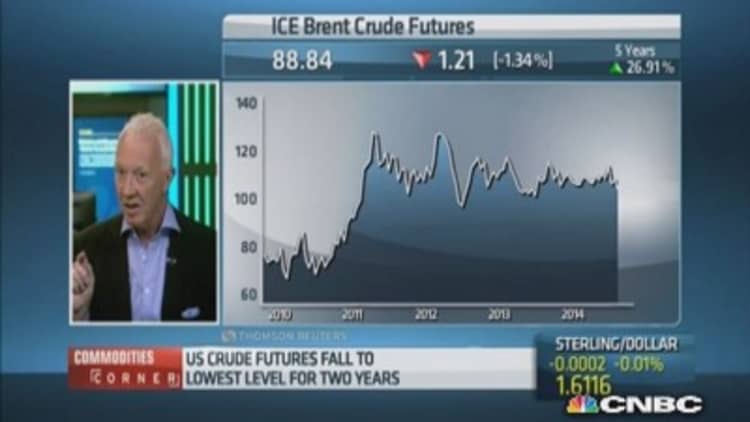A further slump in oil prices may dampen shale drilling's profitable run, according to a report from Goldman Sachs.
In the past four weeks, global oil prices plunged eight percent. And a barrel in the U.S. is below $90, the first time in two years. On Thursday, shares of companies centered in North Dakota's Bakken Shale dropped more than 5 percent.
Read MoreDon't panic over oil: T. Boone Pickens
If prices drop any further, the Wall Street Journal reports, drilling activity would slow down drastically. The key issue lies in the overabundance of oil, with sluggish global demand to match it. Texas, Colorado and North Dakota shale-drilling has increased U.S. production by nearly three million barrels a day since 2011.

And companies are playing a game of chicken—who will be the first to cut back? The least productive fringes of the Bakken would be the first drillers to react to price drops, said Paul Sankey, an energy analyst with Wolfe Research, to Wall Street Journal. Other analysts said it's still too early—a sustained, long term drop in prices is required to convince companies to cut back on supply.
Watch More: Oil prices to rebound in mid-October: JPMorgan
But in some oil fields, it may still be profitable to drill regardless of the drop in prices, found an analysis by Robert W. Baird & Co. It found that although prices could drop to $53 a barrel in certain parts of the Eagle Ford Shale, drilling would still be profitable.
For the overall U.S. economy, the fall in oil prices will bolster industries such as air travel and refining.
Read the full story at Wall Street Journal.

